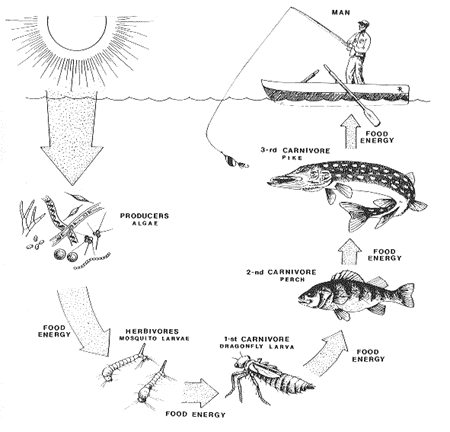|
Using Microsoft Word, the team needs to create (one copy of each for the entire
team) two concept maps that include the following:
- first concept map:
- the name of the ecosystem or biome
- abiotic elements of this ecosystem
- biotic elements of this ecosystem
- description of what this ecosystem is like
- details, e.g. where this is located, details unique to this ecosystem but not others, adaptations of
living things in this ecosystem
- details about human interaction with this ecosystem: both how the ecosystem does (or could) help humans,
and how humans are affecting it
- second concept map:
- a food web with the major producers, herbivores, and carnivores identified
Hand in your file by dragging and dropping it into your class folder located in the student
dropoff folder. You will find the student dropoff folder in the Sir Ernest MacMillan folder located on your desktop.
Make sure you have named your file correctly. It should be named "Team # Concept Maps ACT Class": e.g. Team 3 Concept
Maps 7F.
See the Assessment page for marking criteria and how the final mark for this portion of the project will be assigned
to team members.
Information on Food Chains
Food Chains and Webs

|
| An example of an inverted food chain showing the energy transfer from level to level |
|

